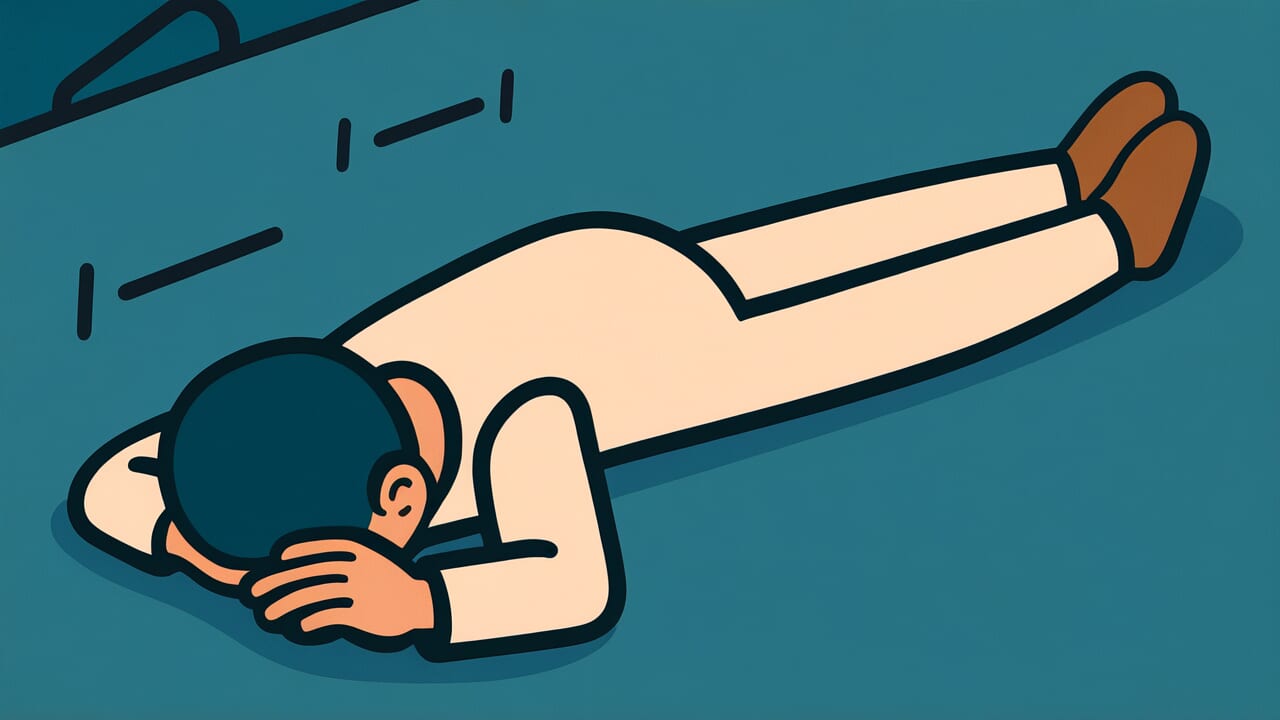How to Read “He begins to die that quits his desires”
He begins to die that quits his desires
[HEE bih-GINZ too DYE that KWITS hiz dih-ZY-erz]
The word “quits” here means “gives up” or “abandons.”
Meaning of “He begins to die that quits his desires”
Simply put, this proverb means that when someone stops wanting things or pursuing goals, they start dying inside.
The literal words tell us about someone who “quits” their desires. This means they give up on the things they want. The deeper message is that our wants and dreams keep us alive. Without them, we lose what makes life worth living.
We use this wisdom when talking about retirement, depression, or giving up. When someone stops caring about their hobbies, they often feel empty. When people lose hope for the future, they seem less alive. The proverb reminds us that wanting things is healthy and normal.
What’s interesting about this wisdom is how it connects desire to life itself. Many people think wanting things is greedy or wrong. But this saying suggests the opposite. It tells us that our desires are what keep us moving forward and growing.
Origin and Etymology
The exact origin of this proverb is unknown, though it appears in various forms in English literature. Early versions focused on the connection between ambition and vitality. The saying reflects older ideas about what keeps people truly alive.
During earlier centuries, people understood that the mind and body were closely connected. They noticed that people who lost interest in life often became sick. This type of saying mattered because it helped explain why some people thrived while others faded away.
The proverb spread through written works and spoken wisdom. Over time, it kept its basic meaning about desire and life. Different versions appeared, but they all shared the same core message. The saying reached modern usage through books, speeches, and everyday conversation.
Interesting Facts
The word “desire” comes from Latin meaning “to long for” or “to await from the stars.” Ancient people believed our wants came from celestial influences. The phrase structure uses an old English pattern where “that” means “who.” This construction was more common in earlier forms of English but sounds formal today.
Usage Examples
- Retirement counselor to client: “Don’t think retirement means giving up everything you love – he begins to die that quits his desires.”
- Mother to teenage son: “I know you’re discouraged about the audition, but keep pursuing music – he begins to die that quits his desires.”
Universal Wisdom
This proverb reveals a fundamental truth about human psychology that our ancestors observed through careful attention to life patterns. They noticed that people who maintained curiosity, ambition, and longing remained vibrant regardless of age, while those who surrendered their wants seemed to wither from within.
The wisdom touches on something deeper than mere goal-setting or motivation. It recognizes that desire itself is a life force, a sign that we remain engaged with possibility. When we stop wanting, we stop reaching beyond our current circumstances. We cease to imagine different futures or better versions of ourselves. This mental withdrawal often precedes physical decline because our bodies respond to our psychological state.
What makes this observation universally true is how it reflects the human need for forward momentum. We are creatures designed for growth, exploration, and change. Our brains reward us for seeking new experiences and pursuing meaningful objectives. When we abandon this natural drive, we work against our own design. The proverb captures why some people remain youthful in spirit while others seem old before their time, regardless of actual age.
When AI Hears This
Your brain treats wanting like fuel for a complex machine. When you desire something, your mind starts planning and preparing. It creates mental maps of possible futures. This forward-thinking process keeps your neural pathways active and engaged. Without new wants, these pathways begin shutting down like unused roads.
Humans are built to always reach toward tomorrow. Your body reads a lack of desires as a signal. It thinks you’ve given up on future survival. This triggers a biological slowdown that affects everything from memory to movement. The act of wanting literally tells your cells to keep investing energy.
This system seems wasteful but it’s actually brilliant design. Most animals only activate when immediate needs arise. Humans stay energized by imagining distant rewards that may never come. This constant forward momentum kept our species exploring and innovating. The beautiful irony is that unfulfilled desires sustain life better than satisfied ones.
Lessons for Today
Living with this wisdom means recognizing that our desires serve as internal compass points, guiding us toward continued growth and engagement. The challenge lies not in pursuing every whim, but in maintaining connection to things that genuinely matter to us. When we notice ourselves becoming indifferent or resigned, we can treat this as a warning signal rather than inevitable decline.
In relationships, this understanding helps us support others through difficult periods. Instead of encouraging people to “accept their limitations” or “be realistic,” we can help them rediscover what they care about. Sometimes people need permission to want things again, especially after disappointment or loss. Recognizing that desire itself is healthy allows us to nurture hope in ourselves and others.
For communities and families, this wisdom suggests the importance of creating environments where people can maintain their interests and pursue new ones. Whether through education, creative opportunities, or simply encouraging conversation about dreams and goals, we can help each other stay connected to the desires that keep us truly alive. The key is understanding that wanting something better is not dissatisfaction with the present, but evidence of our continued vitality.



Comments